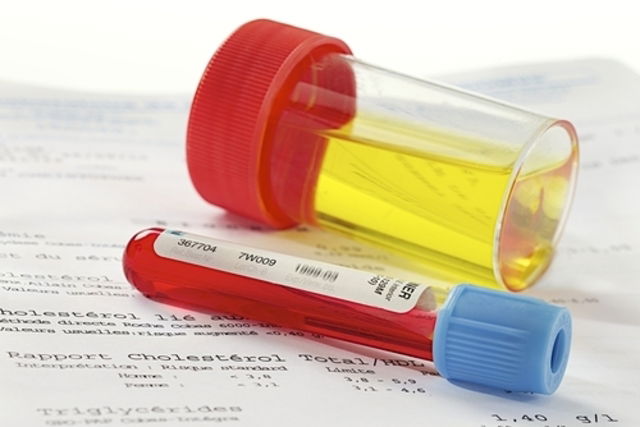What is it:
Creatinine clearance is a formula that is used to evaluate kidney function. It compares the amount of creatinine in the blood with the amount that is excreted in the urine. The result of this test indicates how much of creatinine was removed from the blood and excreted in the urine, which is one of the main processes of the kidneys. Changes to results may be a sign of kidney injury.
Generally, the creatinine clearance test is ordered when there is an abnormal amount of creatinine in the blood and/or an increased amount of protein in the urine. When evaluated with other lab tests, it may be useful in confirming a kidney disease or cardiac diagnosis.
Creatinine clearance can also be ordered as a way to monitor the progression of other diseases, like congestive heart failure or chronic kidney disease.

Creatinine clearance calculator
To calculate your creatinine clearance, enter your blood creatinine level below:
Another formula that can be used to calculate creatinine clearance is the Cockcroft & Gault formula, in which Creatinine clearance = [(140 - age in years) x weight (in kilograms)] / 72 x blood creatinine level (mg/ dL). In female patients, the final result of this formula should be multiples by 0.85.
Creatinine clearance formulas may vary according to the lab. Usually, the method that is used is disclosed in the final lab report with reference levels..
Normal range
Each lab may refer to their own reference levels, which will depend on the formula that is used. Normal creatinine clearance levels may vary depending on the formula used:
- CKD-EPI formula: Creatinine clearance is considered to be normal at 90 mL/min/1.73m².
- Cockcroft & Gault formula: Creatinine clearance is considered by normal at
- 70 to 130 mL/min/1,73 m² for children
- 85 to 125 mL/min/1,73 m² for women, and
- 75 to 115 mL/min/1,73 m² for men.
Therefore, it is important for the doctor to consider both the formula and the patient demographic before interpreting results.
Why it’s ordered
The creatinine clearance test is used to evaluate kidney function and assess the risk for developing other diseases, like kidney failure or cardiac failure.
The creatinine clearance test may also be ordered to evaluate the progression of a kidney disease as well look at the response to treatment.
The doctor may order this test as routine screening, or after receiving other abnormal test results, like abnormal creatinine levels or protein in the urine. He or she may suspect a problem if the patient presents with a swollen face, urine with blood or foam, decreased urine output and constant lower back pain.
How the test is done
To complete a creatinine clearance test, no preparation is necessary. You should follow the doctor’s and lab’s specific instructions for urine collection. Patients are usually advised to collect the first urine of the day, making sure to discard the first stream, and then collect urine.
For a 24 hour urine collection, in which all the urine produced in one day is collected, the last urine collected should be exactly 24 hours after the first urine collected.
The doctor may order a blood creatinine level as well as a urine creatinine level, depending on the formula selected for calculation.
Low creatinine clearance result
A low creatinine clearance is usually a sign of a cardiac or renal problem, like mild to severe kidney injury or renal failure. A decreased result may also be noted in patients who have a diet low in meat intake, like vegetarians, for example.
This result should be evaluated together with other tests and interpreted based on the person’s age, health history and lifestyle.
High creatinine clearance result
A high creatinine clearance is commonly noted in pregnant women, following intense exercise, or after eating a large quantity of meat. In these cases, the doctor should interpret the results alongside other lab results. Learn more about what can cause high creatinine levels in the blood.






























